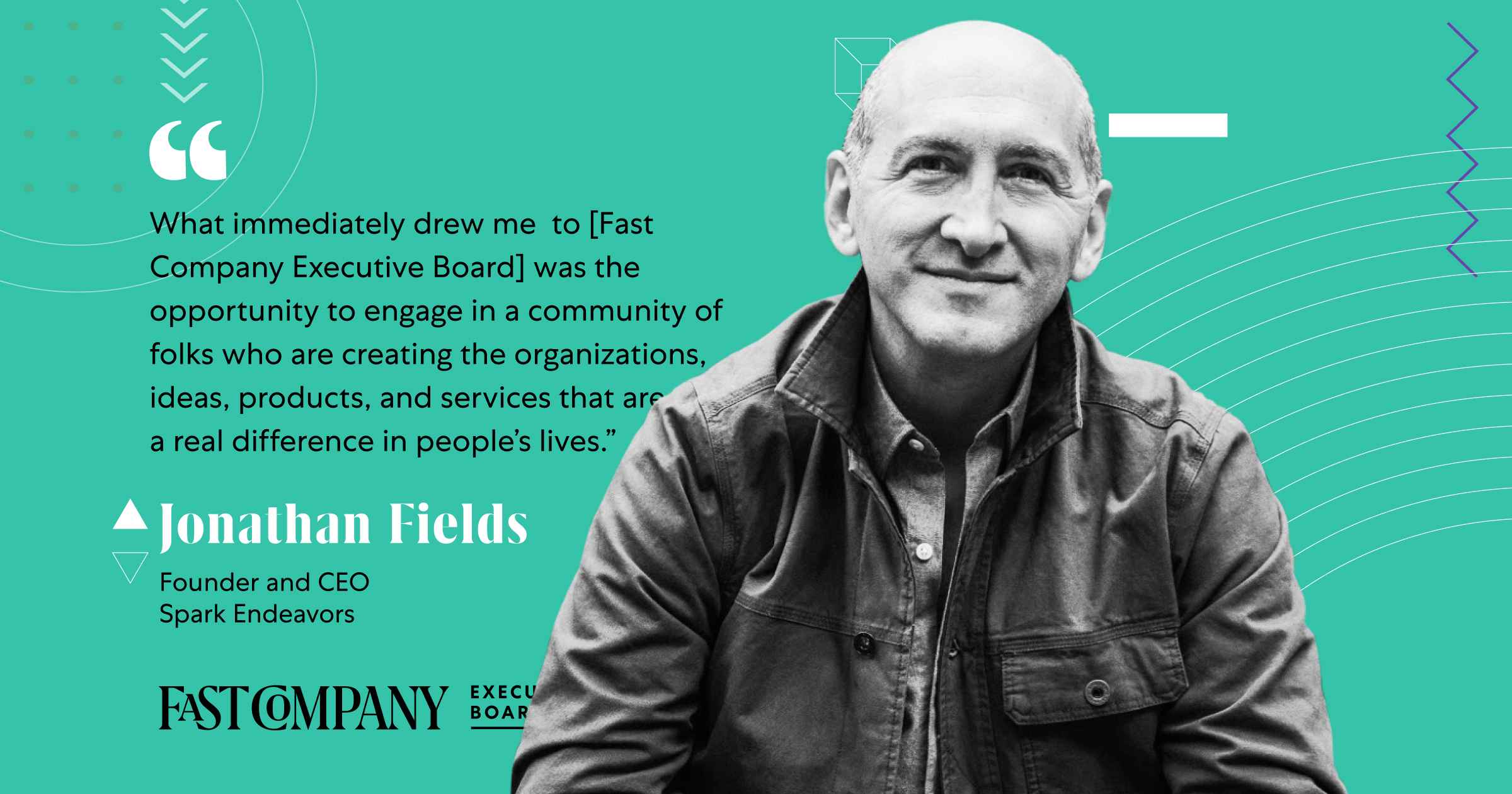Jonathan Fields Drawn to Fast Company Executive Board’s Insightful and Highly Curated Community

By Fast Company Executive Board
Jonathan Fields describes himself as a “citizen scientist nerd.” He’s spent the better part of his professional life digging deep into the study of human potential, positive psychology, and social science to discover what makes people tick and what drives them to live and work meaningfully. “I’ve run a lot of experiments in my own businesses, and worked with a lot of clients to try to create a bit of a living laboratory to see what works and what doesn't,” Fields says.
In 2012, Fields founded Good Life Project, which produces a top-rated podcast with more than 1.2 million downloads a month. He’s interviewed business gurus, best-selling authors, actors, politicians, musicians, spiritual leaders, and CEOs — people he calls “the most accomplished people on the planet. We ask them, ‘what makes you tick and how do you build what you’ve built?’ It really turns into a massive data set.” Pre-COVID, the company also ran in-person gatherings such as adult day camps in upstate New York and leadership retreats in Costa Rica.
Prior to Good Life Project, Fields founded a wellness center and a yoga studio. “I have a lifelong fascination with well-being, whether it's physical, psychological, or emotional,” he says. “I don't see them as separate systems anymore.” He founded Sonic Yoga in 2001, signing a pricey Manhattan lease the day before 9/11. Despite the devastation, the business was a success. “It was a business built around a community, service, and well-being,” says Fields. “And it became a really beloved place.” He sold Sonic Yoga in 2008 to focus on speaking and writing books about how to live a good and meaningful life. Good Life Project was the next step in his “citizen science nerd” journey.
“I have an affinity for the [Fast Company] brand, the quality of work, and the depth of insights and information.”
Fields’s most recent venture, Spark Endeavors, is a culmination of all that he’s learned over the past two decades. People have come to him for years, asking, “what should I do with my life?,” he says. “But what they're really asking is, ‘how do I find and do work that allows me to come alive?’” He began to develop a set of self-assessment tools that people could use to discover what he calls their “sparketype” — archetypes for meaningful work which would then lead them to a clearer understanding of the type of work they were meant to do.
Drawing on the community he had developed through Sonic Yoga and his podcast listenership, Fields shared the beta version of the assessment, and “that set off a bit of a firestorm,” he says. People shared the tool and offered feedback that Fields used to further develop Sparketypes before launching it to the public. “Since then, it's become a bit of a phenomenon with close to a half million people who have been through the assessment, generating more than 25 million data points,” says Fields. “And it's given us just profound insight into what makes people come alive in the specific context of work.”
Spark Endeavors has B2C and B2B business models. Individuals can take the Sparketype® assessment for free and use the results for insight. Or they can upgrade for a fee and receive more detailed information. On the B2B side, Fields offers keynote speaking engagements, workshops and half-day training sessions. The pandemic, he says, has been a catalyst for reflection and exploration for both individuals and company leaders. Individuals, more aware of life’s fragilities, are more inclined to seek out ways to make work more meaningful. And corporate leaders, aware of what their employees may be experiencing, are looking for ways to give people what they need, and to “look a lot more at meaning as a primary metric,” says Fields.
Fast Company Executive Board appeals to Fields because, he says, “I have an affinity for the brand, the quality of work, and the depth of insights and information.” And as a long-time creator of community, he was drawn to the prospect of being part of a highly curated group of leaders and thinkers. “What immediately drew me to [Fast Company Executive Board] was the opportunity to engage in a community of folks who are creating the organizations, ideas, products, and services that are making a real difference in people’s lives,” he says.
